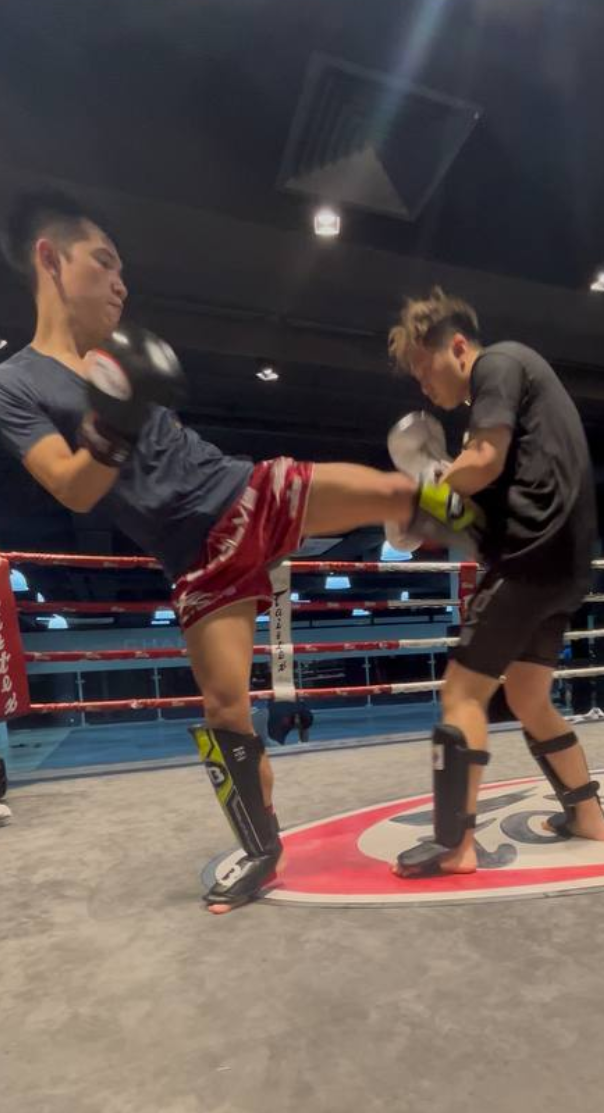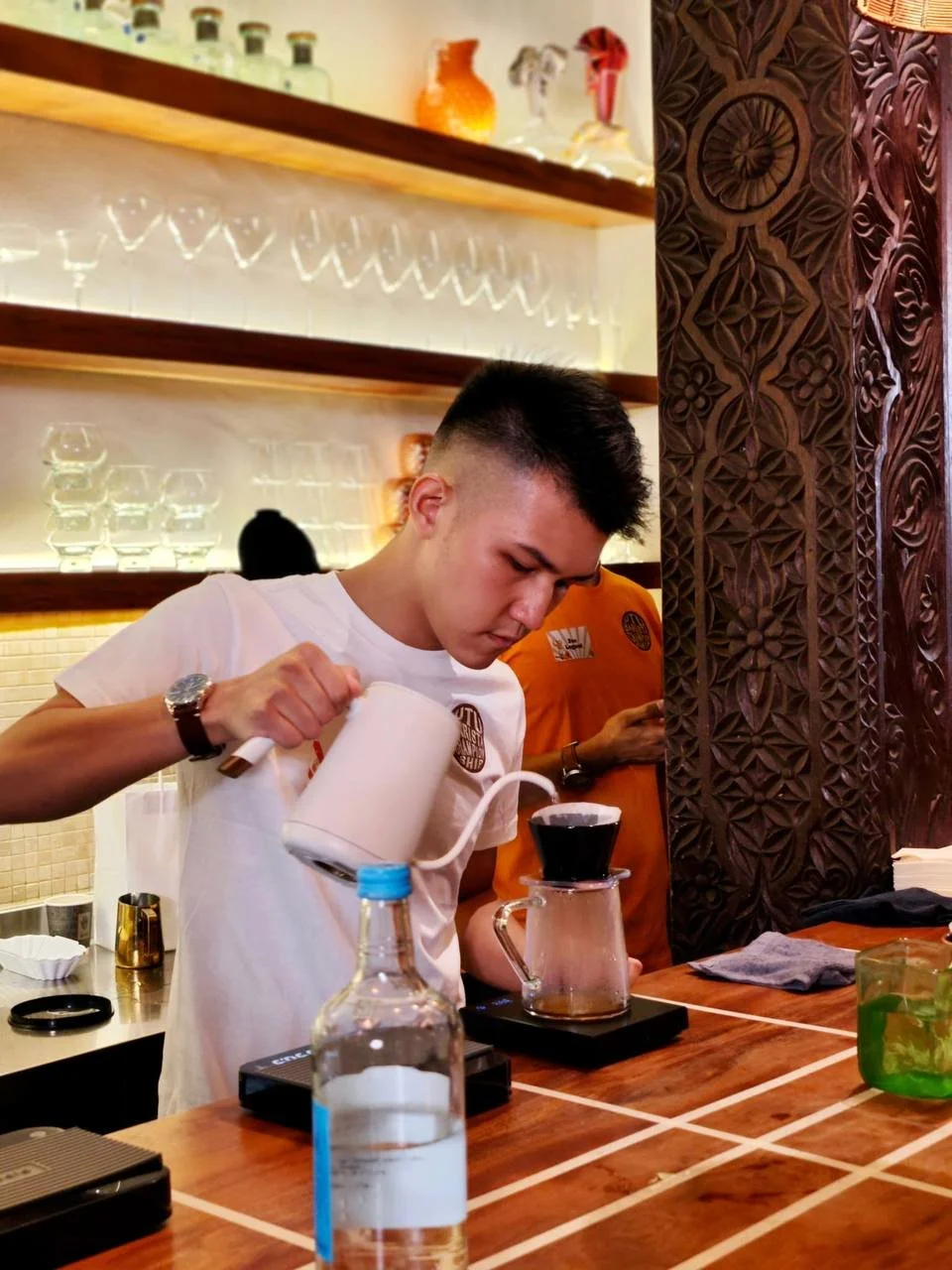Why I Left the Philippines to Move to Singapore
My story isn’t unique. Many Filipinos leave in search of greener pastures, and I was fortunate to have that option.
It’s a privilege, and I’m forever grateful for it. But my reasons for leaving were specific to me—a mix of wanting independence, breaking out of my comfort zone, and setting myself up for a better future.
I grew up in Cebu. Most of my life was spent there before moving to Manila for college and my first job in 2018.
Cebu was home, but Manila was supposed to be a step forward. It wasn’t bad—I had a condo near work, spent my free time recording music in studios, catching local gigs, or working on my own tracks, and weekends were easy at my uncle’s place. I didn’t have to worry about much.
The problem? It was too easy.
I wasn’t learning how to handle life on my own. Comfort dulled the edges of ambition, and I knew I was coasting. It felt like I was waiting for something to happen instead of making it happen myself.
What Made Me Decide to Move
The decision to leave wasn’t something I stumbled into. It built over time, driven by several things that became impossible to ignore.
The Desire for Independence
Living alone in Manila was more like play-acting independence. My parents were still covering most of my bills.
The freedom I thought I had was conditional on their support. On my own, I couldn’t sustain the lifestyle I wanted, especially since salaries in the Philippines are low.
Contrary to popular belief, the cost of living is not affordable relative to most income brackets.
A Need for a Career Change
My first job was business development, a role I fell into because I had no direction at the time.
It involved me doing a bit of everything—from PR and branding to market research, stakeholder management, due diligence, and everything in between.
While it wasn’t a bad experience and while it gave me valuable skills, it wasn’t the line of work or the industry for me.
Along the way, I stumbled across SEO. What drew me in was how it combines technical and creative thinking. I’ve never been fully left-brained or right-brained, and that used to feel like a disadvantage.
I wasn’t a full-on creative, nor was I someone with a completely technical background like an engineer. But SEO thrives on both. Finding a career where I could use both sides felt empowering.
That said, my next problem was the Philippines. Even if I made the career shift and landed an SEO job in Manila, the limitations were glaring.
Sure, there were plenty of roles, but the salaries wouldn’t cut it.
Until I'd hit something like a senior manager position, it would still be difficult to live independently. Staying meant settling—for less growth, less freedom, and less of what I knew I could achieve somewhere else.
Feeling “Too Comfortable”
On the flip side, if I were to take a worst case scenario and fail in Manila, I could always go back to Cebu and find a job anywhere. It’s not a competitive environment, and that made it feel too easy.
That safety net was stifling because it meant I could avoid pushing myself. I’d likely end up in another generalist role, similar to business development, without the chance to build a specific skill set I could really own.
Being surrounded by family wouldn’t help either. There was always someone who could help me out with anything and everything. It created an environment where I wasn’t forced to grow.
Living Alone During the Pandemic
The pandemic was what really lit a fire under my ass. I didn’t have the option of immediately flying back to Cebu. In effect, I stayed alone in my condo in Manila for three quarters.
This was the very first time I feared for my life. Almost daily, we would hear news about hospitals being over-capacity and people dying.
During that time, I constantly had to deal with the anxiety of “If I get sick, there’s literally nobody that can attend to me. I could very well die”.
While almost every country had faced some level of controversy with their pandemic responses, at that point, I just wanted to be in a much more orderly environment where I could have more faith in the system rather than feel like I'm constantly playing a game of Russian roulette every time I step outside the house.
Getting Accepted to NTU
Given my career prospects at the time, I felt I needed stronger credentials if I really wanted to make a career switch into digital marketing. I also saw it as an MBA-equivalent—something that would still be useful even if I later pivoted, as long as I stayed in the marketing space.
Over the last quarter of 2020, I spent my time applying to various programmes. I eventually got accepted into NTU’s Master’s in Marketing Science programme in early 2021.
That acceptance validated my direction. My understanding of marketing was shallow, and my hands-on experience in digital marketing was minimal.
But I had the ability to think strategically and apply thorough analysis—qualities that likely got me through. And since that admission, those are the same qualities I’ve continued to sharpen.
What Do I Like About Singapore?
Career Opportunities
First and foremost, my move to Singapore was motivated by the job opportunities. Many international companies set up their Asia headquarters here, and that makes Singapore the place to be for someone looking to grow in a more global environment.
After four years of working here, I can attest that the level of opportunity here demands that I constantly learn and improve quickly to keep up.
In Singapore, I’ve also found more motivation for building my career because it’s a more meritocratic environment.
The Philippines, in contrast, is often not the case. There’s a culture of “smart shaming” where people start to look down on those that are competent and continue to push for excellence.
Too often have I seen & heard stories of people getting away not actually performing and still progressing in their careers because they’ve won in the office’s popularity contest.
And while this can be found in almost any work environment, where I’m getting at is that I’d prefer to work in a culture that rewards competence rather than shames it.
Hobby Deep Dives
Towards the end of my stay in the Philippines, my hobbies started to shift from music to Muay Thai and specialty coffee. Here’s how living in Singapore enabled me to get even more out of these hobbies.
Muay Thai
The quality of Muay Thai training in Singapore compared to the Philippines is night and day. Particularly because many of the gyms have Thai trainers who used to compete in Thailand’s stadiums and/or locals who regularly compete and go to Thailand to train. T
his authentic experience helped me to appreciate the sport more because there’s none of that in the Philippines. Often, what most gyms teach is a glorified cardio session packaged as “Muay Thai” that also gets influenced by several other martial arts.
Training under the Thais also immersed me in more than just the fighting aspect. A big aspect of the sport is also Thai culture, traditions, and values that I’ve come to really appreciate.
Specialty Coffee
Being in Singapore gives me more access to coffees from some of the best roasters worldwide.
Throughout my stay, I’ve attended workshops from baristas who competed in global competitions and even got to taste the coffees they’ve used to compete.
And every time I get to try these coffees, I still can’t help but say “Wow, this is coffee?!”. Granted, this is also starting to become more accessible in the Philippines, but nowhere near as often.
Even just importing coffees from roasters across the globe is easier as many of them simply don’t ship to the Philippines but do ship to Singapore.
The Food
I’ve always found Filipino food to be the “odd one out” among Southeast Asian cuisines. With most cuisines in SEA I see the similarities/overlaps in how the dishes are prepared and in their overall flavour profiles.
Compared to most Filipinos, my taste preferences are vastly different.
I particularly love curries and super spicy food - neither of which are common preferences for Filipinos but are common in lots of local Malaysian, Singaporean, Indonesian, and Thai foods.
Frankly speaking, being in Singapore made me realise how much I enjoy every other Southeast Asian cuisine because I never really missed Filipino food or actively looked for it since I moved.
The Safety
Quite simply, Singapore is the safest country I’ve been to.
Where some might complain that it’s so safe it’s boring, I take comfort in the fact that I could walk around any street at 3am in the morning and not have my guard up.
Lessons Learnt From Moving
Independence Abroad Is Another Difficulty Level
It’s one thing to preach independence—it’s another when there’s no fallback if things go south.
Figuring out a new routine, my living space, social life, paperwork, my health - those were only tip of the iceberg. At the heart of it is fully coming to terms with the main reason I'm able to stay in Singapore - for work.
Others might feel differently about this. But, to me, this meant that I'd naturally have to take work more seriously, be more careful about what I say and do, and always try to put in my best efforts.
Why? Because mistakes aren't buffered by a support system and can be harder to reverse if I screw up.
Dealing With New Kinds of Stress
I’ve had many moments where work put me on edge. It didn’t matter whether the pressure came from a mistake I made or from my company going through a rough patch—the fear felt the same either way.
Even going home to the Philippines could trigger anxiety. Most Filipinos working overseas know how stressful it is to secure an OEC—the final certificate Philippines immigration checks before letting us board our flight to the country we’re working in.
Oftentimes, just getting that certificate comes down to the wire. My experience was no different, and going through this has taught me to empathize with anybody going through immigration troubles.
Experiencing Growth
Growing up, I was rarely put in situations that truly broke me.
Moving abroad changed that because it came with some of the hardest challenges I’ve ever faced. And yeah, they sucked. But I learned to keep my head down and look forward to what’s on the other side.
One experience forever ingrained into my memory was when I first flew back to Manila in 2022. While this was just one year after I left to move to SG, it felt longer because of how long questions of something bigger had been brewing in my head.
Walking the same streets I used to cross regularly was surreal. Three years prior, I had no idea if I could actually do better, whether I was even good enough, and how much work I needed to do to change anything.
Physically living out the difference in the same place, I used to feel those doubts nearly put me to tears because I couldn’t believe it. Whenever I’m in another tough patch, I remind myself of this core memory and how irreplaceable that feeling is.
How Moving to Singapore Changed My Life
I can honestly say that my life has undergone a significant upgrade ever since I moved.
Growing up, I never actually thought I was smart, or fit, or competitive—let alone someone who could achieve the things I wanted for myself.
In school, all the way up to university, I envied people who could ace exams with minimal studying while I had to work my ass off. That belief only changed when I got accepted into my Master’s programme because I knew I got in through strategy.
I knew how to position my application and make a case. Only 40 students were accepted out of 1000 applicants. Being part of that cohort and being able to hold smart conversations with my classmates and professors solidified that belief.
I was never sporty growing up, always just skinny with no muscle. But being in an environment where people were genuinely enthusiastic about Muay Thai pushed me.
The trainers saw my potential and encouraged me to keep levelling up. I’m physically in the best shape of my life because I look forward to training Muay Thai 4–5 times a week, for two hours each session.
As a side effect, it also imparted a healthy level of competitiveness that I now see carry over into other parts of my life.
Five years ago, the idea of moving to another country and making something of myself felt impossible. But I fought tooth and nail to get here. And what I’ve learned is: if I really want something, I’ll give it my everything or die trying.






